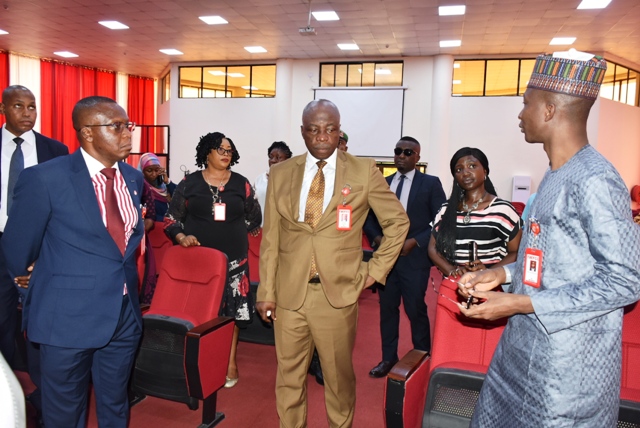Business
High Cooking Gas Price: Monarch Tasks Nigerians On Credible Leadership

Following the continuous rise in the cost of cooking gas, and non-availability of kerosene in filling stations in Nigeria, a traditional ruler, King Edmond Dakoru, has urged the electorate to elect a credible President that will fix the economy of the country, irrespective of tribe or religion.
Dakoru, who is the Mingi of Nembe Kingdom in Bayelsa State, said Nigerian households have suffered untold hardship in recent time due to the scarcity and high cost of cooking gas and kerosene, which is the main stay of cooking energy for every household in the cities and urban areas.
Dakoru, a former Minister of Petroleum, who disclosed this while speaking to aviation correspondents shortly on arrival at the Port Harcourt International Airport, Omagwa, noted that the scarcity of cooking energy and its high cost has kept many families miserable.
According to him, an opportunity has come when Nigerians will exercise their power to change the situation, by electing a good leader that will turn the economy around, through their ballot paper and voters card.
“This is all about politics.
This is the moment of choice, use it wisely. Some people will say if they give me the money, I will take, but taking it is one thing, do the right thing is another thing.
“By doing that right thing, you vote the right person who can fix the economy of the country. Oil is our main stay, but we should develop other areas, and that is my position.
“The Russian and Ukraine war has brought back the value and price of oil that was almost going.
“Agriculture must be looked up to, and from agriculture, we can make other sources of energy.
“From sugar cane, we can make Ethernol, and there are so many things we can do and get through agriculture.
“So, let us look forward to changing for good leadership. In every challenge, there will always be an opening for opportunities”, the monarch said.
He also urged Nigerian masses and leaders to “take advantage of this opportunity of windfall on oil and gas, to develop other sources of energy”.
By: Collins Walter
Business
Two Federal Agencies Enter Pack On Expansion, Sustainable Electricity In Niger Delta

Business
Why The AI Boom May Extend The Reign Of Natural Gas

Business
Ogun To Join Oil-Producing States ……..As NNPCL Kicks Off Commercial Oil Production At Eba

-

 Politics4 days ago
Politics4 days agoAPC Releases Adjusted Timetable For Nationwide Congresses, Convention
-
Sports3 days ago
DG NIS Wants NSC Board Constituted, Seeks Increased In Funding
-

 Business4 days ago
Business4 days agoCustoms Seek Support To Curb Smuggling In Ogun
-

 Featured3 days ago
Featured3 days agoINEC Proposes N873.78bn For 2027 Elections, N171bn For 2026 Operations
-

 Sports3 days ago
Sports3 days agoSWAN Rivers Set-up Five Functional Committees
-
News3 days ago
Police Bust Kidnapping Syndicate In PH
-
Sports3 days ago
NSC Disburses N200m Training Grants To 26 Athletes
-
Sports3 days ago
‘NTF Will Build On Davis Cup Success For Brighter Future’

